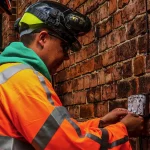A Look at BT Group’s UK Single Rural Full Fibre Network Idea

The CEO of BT Group, Philip Jansen, has proposed a new framework, which could see builders of “full fibre” (FTTP) broadband ISP networks working together in the final 20-30% of hardest to reach premises to maximise coverage, such as by avoiding overbuild in areas that can’t support multiple networks and sharing access.
On the surface it sounds like a fair idea, which BT said would be “fully transparent” and could be mediated by Ofcom so that rivals can share their roll-out plans in confidence. Essentially, you’d have a deal where rivals agree to co-operate and avoid overlapping each other’s “full fibre” networks in the final 20-30% of hardest to reach UK premises (co-build, reciprocal build or a shared network – e.g. giving each player their own local network monopoly, albeit with an obligation to offer wholesale access).
However at present there are rules designed to protect competition, which also prevent price fixing and the creation of cartels. Such rules are likely to be an impediment to the aforementioned proposal as there would need to be some agreement on prices, standards of access (wholesale), regulation etc. Nevertheless the argument is that something similar is already being done by UK mobile operators via the £1bn Shared Rural Network (SRN).
Advertisement
On the other hand the economics, build challenges and time-scales of building FTTP down every single street vs building a fibre-fed mobile mast that can cover a wide area are significantly different, and so too are their respective markets, regulation and competition considerations.
At present lots of ISPs are deploying full fibre and with some very different kit/models, while there are only four primary mobile networks and they tend to adopt broadly similar kit/models. It’s easier to bring four big, but similar, networks together than 50-100 smaller ones with different approaches (like herding cats).
Meanwhile Openreach (BT) would of course like nothing better than to have less regulatory baggage, or for their rivals to suffer some of the same baggage.
Digging Deeper
Alternative networks often build closed full fibre platforms (except when using public funding, although the wholesale offers from altnets in those cases can very) as a means of protecting their investment and the higher level of risk they’re taking as smaller players. Put another way, enticing them to become more open access and to share their deployment plans will be difficult without a bigger carrot to dangle (some altnet ISPs have in the past complained that Openreach turned up in the same areas only after they had first revealed their own roll-out plans).
Advertisement
Questions might also be raised over the issue of creating a different pricing standard for urban and rural areas, although this arguably already exists because it costs more to build in rural areas and often – but not always (e.g. B4RN) – that’s reflected in the regulation and price you pay for a new service.
Equally some may argue that by implementing a rule to protect local monopolies you’d also hinder competition, even if the chance of that competition happening in such areas is minimal. On this point we can’t help but wonder how the new shared rural fibre group of operators would treat those networks that choose not to join their club.
Suffice to say that reaching any kind of truly mutually beneficial arrangement between operators would be difficult. Implementing all of this would also take a lot of time and consultation, although in fairness it will probably be late 2021 before the Government’s own framework for their £5bn “gigabit” broadband roll-out plan is ready to come out of the oven (here) – time enough, perhaps, to come up with a deal.
At the same time we must not forget that BT usually speaks from a position of vested interest, just as all operators tend to do, which is illuminated by Jansen’s perhaps unworkable suggestion that the Government should make investing in rural areas a condition of being allowed to build “full fibre” in cities. Obviously this is targeted to hurt rivals like Cityfibre, Community Fibre, Hyperoptic and even Virgin Media, which are urban builders.
Advertisement
As it stands the Telegraph‘s (paywall) piece from last week doesn’t offer much detail and so we can only speculate. Nevertheless BT’s idea is interesting and worth some consideration, but we suspect that there might ultimately end up being too many devils in the detail for this one to attract wide support from within the industry.
Mark is a professional technology writer, IT consultant and computer engineer from Dorset (England), he also founded ISPreview in 1999 and enjoys analysing the latest telecoms and broadband developments. Find me on X (Twitter), Mastodon, Facebook, BlueSky, Threads.net and Linkedin.
« ICS Wants Full Fibre Broadband for All of Scotland by 2027 UPDATE






















































Such a proposal needs to be preceeded by a ‘true-up’ on BT’s capital contributions to the gap funding model and utilisation of the clawback.
BDUK rural fttp is 6-7k a month, needs grow to 20k a month given monies owed. With NI and R100 coming on-line this leaves a 500k to be contracted in England.
He has forgotten the B-USO which could be easily adjusted to 24-30Mbps.
On first reading at least it is not terribly inspiring.
There goes Philip Jansen taking a known working model used in the power sector (before network owners and suppliers were forced to split) and applying it to FTTP.
I also would add that BT is renowned for “protecting its own interest”.
For years BT held back the possibility of a national full-fibre network so that they could continue to ‘sweat their ageing copper assets’.
The result was the UK languishing at the bottom of both EU-wide and global FTTP installed base league tables…
That was impressive BT preventing anyone else from building in the UK.
You realise Offcom prevented BT from building fibre in the access network until 2009?
Maybe this is where the NAN can be considered?
It takes less than 5 minutes to realises there is absolutely no incentive in this model proposed to keep it current, i.e. matching the reliability/tops speeds offered/deployed in cities. It will be handouts all the way to do so, once BT’s model is deployed.
This sounds like a typical land grab by BT to use B4RN’s infrastructure (to pick one alt-net).
It would be far better if there was a model put in place nationally that encouraged similar expansion using the B4RN model rather than the BT Openreach model rurally, because B4RN’s model is clearly working, with reliablilty speeds offered matching the best available elsewhere.
Actively powered networks like FTTC are absolutely the wrong approach in rural Scotland, it’s about time Ofcom published the amount of FTTC equipment destroyed each year due flooding/deployment in wet windswept landscapes. BT know deploying this type of kit in Scotland in a money making exercise in maintenance.
B4RN’s model is clearly an embarassment for BT, because BT sat on their hands, pushng their outdated copper carcass as their preferred model and rather than get local Government to throw money at BT to do the job, the B4RN locals set up their own model and did so without outside help. They have put BT to shame.
Not so much overbuild, as clean slate, ditch BT’s legacy copper carcass network wholesale rurally and let BT find themselves new markets. If BT want to sit on their hands, let them. Rural areas have been neglected for years, there is no point throwing money at the incumbent. It just prolongs the problem.
Rurally networks need to be owned by the community so there is incentive to invest the returns, B4RN’s clearly shows this. Fundamentlaly is keeps costs down and offers simplicity in terms of the rollout (rurually the network design doesn’t need to be overcomplicated, increasing costs.
Ofcom/BT/Openreach collectively (due to parachuted BT exec’s working for Ofcom) continually come up with overly complex ‘encyclopedic, reams of regulation’ models/designs that just bamboozles/obfuscates the real issues, designed around a pathetic model of ‘fake/faux competition’.
Adam, Ba4N is at ~5,000 premises passed or perhaps connected. BDUK is ~4.8m FTTC and 480k FTTP (includes Cornwall) in rural. BT now owe >£600m in clawback plus any monies to be reconciled in the gap funding model.
BDUK today from the residual work owed is reporting 5-7K rural FTTP premises passedd a month. This is without converting the monies owed into full fibre in rural England. The devolved nations have plans but these have yet to come on stream.
The utility of subsidised FTTC cabs ~40k of them might be only to be show how feasible it is to complete the job.
I am sure BT Group would like nothing better than discussing the selective sale of some of its rural network on a hypothetical basis, while Government continue to invest in it, but the opportunity to build rural delivery to 20k FTTP a month looks possible.
How do Openreach make money from replacing and repairing FTTC cabinets? It’s a fascinating argument. In other news, I’m making loads and loads of money replacing the tires on my car that have been damaged by potholes.